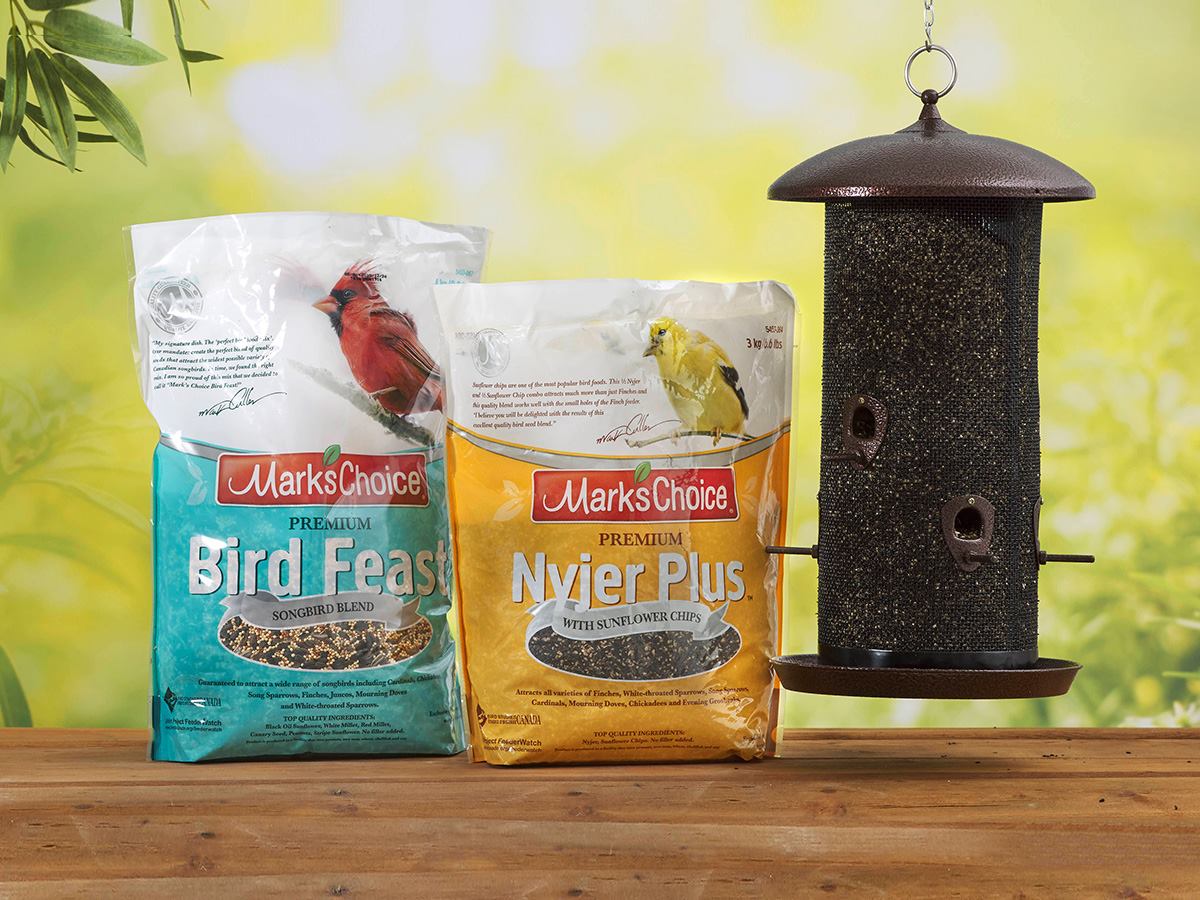For The Birds
By Mark and Ben Cullen
www.markcullen.com
We have learned so much about backyard birding from our friends at Birds Canada. Here are some highlights of what we have learned:
1. Birds do not need us to feed them. Many well-intentioned feeders of birds (vs. ‘bird feeders’) believe that wild birds become dependent on us for food. Other than, perhaps, the coldest days of the year and the ones with the deepest snow fall, birds are very capable of finding food from natural sources. They are much like us in that they will take the easiest path to a meal and if it happens to be at your feeder that is where they will congregate. The good news is that you are free to go on vacation and not keep the bird feeders full, without feeling guilty.

2. Use the appropriate seed. Consider what kinds of birds you wish to attract to your yard and put out the appropriate seed in your feeders. Here is a short list from Birds Canada:
a. Black oil sunflower/premium mixed seed attracts Cardinal, black-capped Chickadee, Mourning Dove, Dark-eyed Junco, song sparrow and common Grackle.
b. Suet and bird peanuts (vs peanuts for human consumption, which is a no-no as birds should not have salt –something else that we learned) attract Blue jay, red-breasted nuthatch, Downy Woodpecker, White-breasted Nuthatch, Hairy Woodpecker.
c. Nyjer/Black oil sunflower seed attracts house finch, American Goldfinch, Purple Finch, Common Redpoll, Pine Siskin. Use a nyjer feeder and watch the bird population scrap over who gets the spoils first.
d. Bird Feast. We have prepared a blend of seed that is amazingly effective where attracting songbirds is concerned. It is a Mark’s Choice product, approved by Birds Canada and is available at Home Hardware.

3. Water. This is the single most impactful feature that you can add to your yard in your effort to attract birds (apart from a full bird feeder). Birds need water to drink and bathe. A half barrel or a full-blown pond and stream works wonders. Mark has 5 bird ‘baths’ in his yard at last count. They use them all.
4. Shelter. Birds need shelter to breed and for protection from cold, wind, snow and their enemies like hawks, falcons and neighbourhood cats. Especially cats. The best protection that you can provide wild birds is evergreens that grow tall and thick. Cedars, spruce, fir and like all work like a charm.
Birds Canada is the largest and most sophisticated organisation of its kind. Each year they depend on the public to help them determine the migration patterns of all wild bird species and population growth and decline.
You can become a ‘citizen scientist’ by taking part in the largest bird count in the country. All you have to do is log on to www.birdscanada.org to learn more and register.